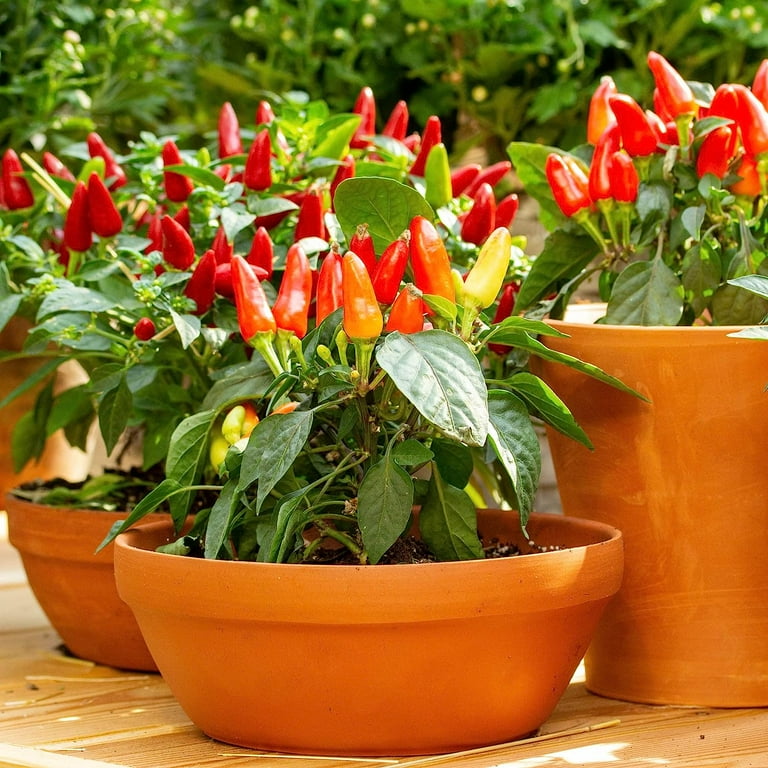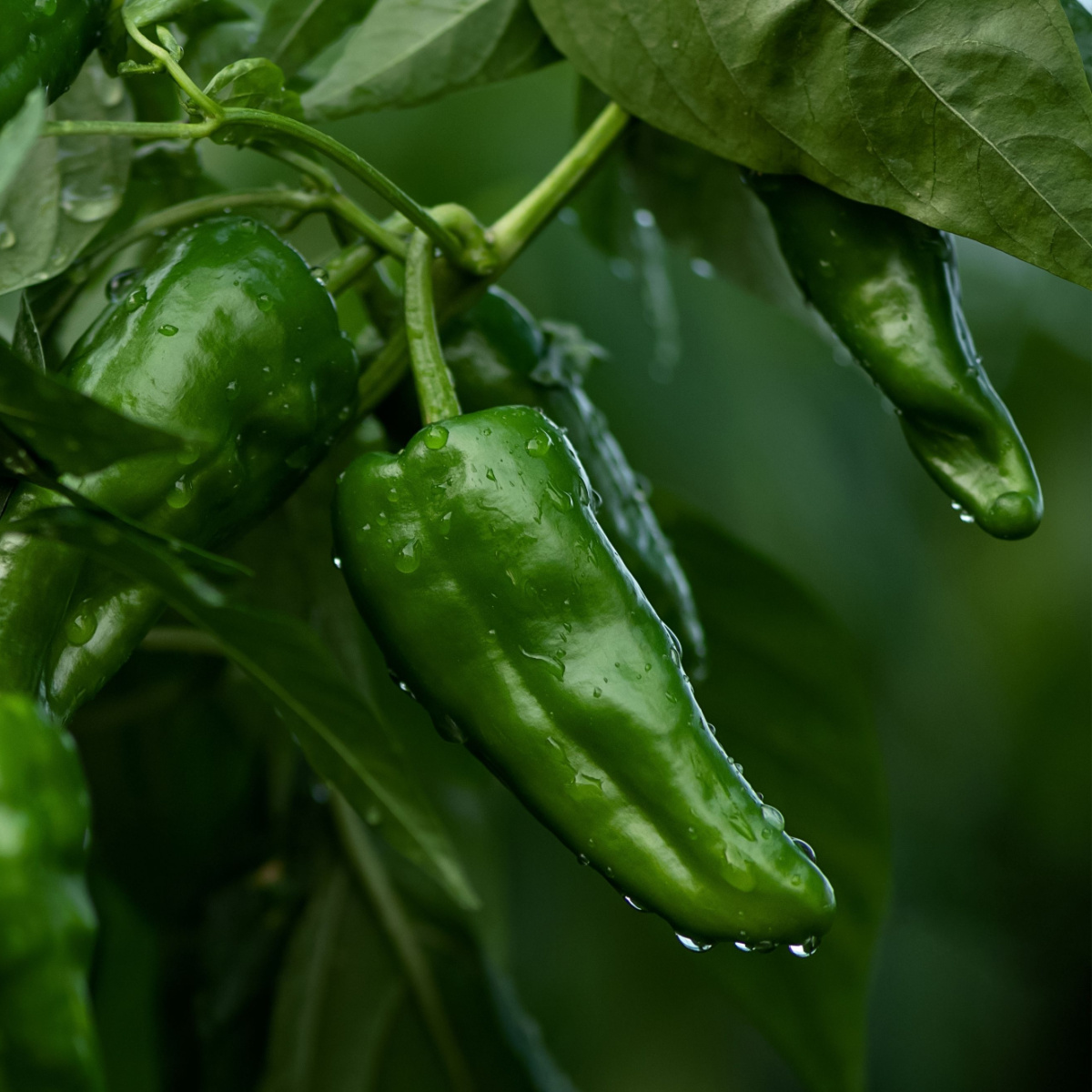How Plant Foods Play a Crucial Function in Growing Healthy And Balanced and Abundant Pepper Crops
Fertilizers serve as the backbone of successful pepper growing, supplying a critical technique to nourishing the dirt and promoting ideal plant growth. The intricate dancing between important nutrients and the pepper plants' physiological procedures highlights the critical duty that plant foods play in guaranteeing a bountiful harvest.
Relevance of Nutrient-Rich Plant Foods
The usage of nutrient-rich plant foods plays an essential role in boosting the efficiency and quality of pepper plants in modern farming methods. Pepper plants call for a well balanced combination of crucial nutrients to prosper and create high yields of high quality fruits. Nitrogen, potassium, and phosphorus are key nutrients that are important for the development and advancement of pepper plants. Nitrogen help in leafy environment-friendly growth and general plant vitality, phosphorus supports origin development and flower production, while potassium adds to condition resistance and fruit high quality.
Poor degrees of these nutrients can lead to stunted growth, reduced yields, and susceptibility to diseases (best fertilizers for peppers). Nutrient-rich fertilizers offer a targeted option to ensure that pepper plants receive the necessary elements for optimal development and performance. In addition, these plant foods assist enhance soil fertility in time, creating a sustainable setting for lasting pepper growing
Enhancing Plant Growth and Development
To enhance plant development and growth in pepper crops, critical application of nutrient-rich fertilizers is essential. Plant foods play an essential duty in enhancing the total health and wellness and productivity of pepper plants by giving them with vital nutrients that might be lacking in the dirt.
Along with these macronutrients, micronutrients such as iron, magnesium, and zinc are additionally important for the appropriate functioning of different plant procedures. Iron, for example, is required for chlorophyll production, which is important for photosynthesis and general plant development. Zinc plays a vital duty in enzyme activity and hormone synthesis, impacting plant development and advancement at a cellular level. Magnesium is necessary for the formation of chlorophyll and total power transfer within the plant.

Boosting Condition Resistance With Plant Foods
By tactically including targeted fertilizers, farmers can reinforce the condition resistance of pepper crops, ensuring optimum plant health and productivity. Plant foods containing vital nutrients like potassium, phosphorus, and nitrogen play a critical role in enhancing pepper plants' immune systems, making them extra resilient to numerous diseases. Nitrogen, for circumstances, aids in the production of proteins that are important for plant defense reaction. Phosphorus adds to root growth, allowing plants to better absorb nutrients and water, hence boosting their capacity to ward off illness. Potassium controls procedures that enhance general plant wellness, making peppers extra robust versus microorganisms.

Making Best Use Of Pepper Return With Fertilization
Using a balanced fertilizing strategy is key to attaining maximum pepper return and making certain optimal crop efficiency. By offering peppers with the ideal nutrients at the appropriate time, farmers can significantly enhance their yield capacity. Nitrogen, potassium, and phosphorus are vital components for pepper development, with nitrogen assisting in leaf and stem growth, phosphorus sustaining origin growth and flower development, and potassium advertising overall plant health.
To optimize pepper yield, it is important to carry out soil tests to determine existing nutrient levels and identify any shortages that need to be dealt with. Based upon these outcomes, farmers can establish a tailored fertilizing plan that fulfills the details needs of their pepper crops. Furthermore, correct fertilization techniques such as split applications throughout the expanding season can make sure click resources constant nutrition accessibility for the plants.

Lasting Plant Food Practices for Peppers
In taking into consideration sustainable plant food practices for peppers, it is important to concentrate on long-term soil health and ecological stewardship together with making the most of crop productivity. Sustainable plant food practices intend to improve or keep soil fertility while decreasing unfavorable environmental impacts. One crucial strategy is using natural plant foods such as garden compost, manure, or cover plants, which not only provide vital nutrients to the peppers however also add to dirt framework and microbial activity. These organic options assist construct natural matter in the dirt, boosting its ability to preserve water and nutrients, thus sustaining long-term plant health and wellness and strength.
Additionally, accuracy agriculture techniques, such as dirt screening and targeted nutrient applications, can aid enhance fertilizer use, making sure that peppers get the nutrients they require without excess overflow into rivers. This not just benefits the atmosphere by decreasing air pollution but additionally saves costs for farmers by lessening waste. By embracing sustainable fertilizer practices, pepper cultivators can safeguard the health of their crops, soil, and surrounding ecological communities for future generations.
Final Thought
Finally, plant foods are necessary for growing healthy and balanced and bountiful pepper plants. best fertilizers for peppers. They supply essential nutrients for plant development and advancement, boost illness resistance, and take full advantage of return. By implementing sustainable plant food methods, farmers can ensure the long-lasting wellness of their pepper crops and contribute to an extra environmentally-friendly and effective farming Recommended Reading system
The elaborate dancing in between essential nutrients and the pepper plants' physiological procedures emphasizes the pivotal function that plant foods play in ensuring a bountiful harvest.To maximize plant growth and advancement in pepper plants, critical application of nutrient-rich fertilizers is important. Plant foods play a crucial function in boosting the total wellness and productivity of pepper plants by supplying them with essential nutrients that may be lacking in the soil.By purposefully incorporating targeted fertilizers, farmers can reinforce the condition resistance of pepper plants, ensuring optimal plant health and wellness and efficiency. Plant foods consisting of crucial nutrients like phosphorus, potassium, and nitrogen play a critical duty in enhancing pepper plants' immune systems, making them much more durable to various diseases.